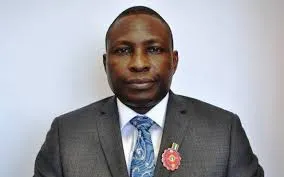
Paradox of Corruption: EFCC’s Olukoyede on Nigerians Defending Guilty Leaders
In December 2023, the Chairman of the Economic and Financial Crimes Commission (EFCC), Ola Olukoyede, highlighted a paradox in Nigerian society: while citizens frequently express dissatisfaction with corruption, they often defend leaders implicated in corrupt practices. He emphasized that individuals from various religious and ethnic backgrounds are involved in corruption, underscoring the need for a collective societal shift to effectively combat this issue.
This sentiment echoes earlier observations by former President Olusegun Obasanjo, who, in September 2024, lamented the high level of corruption among Nigerian politicians and advocated for stringent measures against such individuals. He emphasized that many current leaders, both in executive and legislative positions, should be held accountable for their past misconduct.
The persistence of corruption in Nigeria has been attributed to systemic issues within the judicial framework. In December 2024, Davidson Alaribe, President of the Institute of Chartered Accountants of Nigeria (ICAN), criticized the nation’s judicial system for its leniency towards corrupt individuals. He advocated for the establishment of special courts to expedite corruption cases and impose severe penalties, such as life imprisonment, to deter potential offenders.